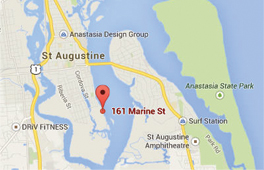The Power of Music: Why it Works
Have you ever wondered why music therapy for dementia is so powerful? One reason is that music triggers pleasure points in the brain allowing us to recall good feelings. 
The Power of Music: Why it Works
By now, you’ve probably seen or heard the video. An elderly man, in the throes of late stage dementia, is slumped over a wheelchair, unresponsive. When the nursing home staff gives him headphones and play familiar music from decades before on an iPod, he literally comes alive. He sits up, smiles, begins moving his head and hands, and flawlessly sings the lyrics to songs he hasn’t heard in 40 years.
While not always so dramatic, I have seen music’s transformative powers for those with dementia. I attended a rehearsal of the New York City-based The Unforgettables, a chorus of members with early to mid-stage Alzheimer’s and their caregiving spouses or children. An outsider wouldn’t be able to tell who had dementia and who didn’t! They were all engaged and singing away.
The group was conducted by music therapist Tania Papayannopoulou, and founded by Dr. Mary Mittleman, a researcher at the NYU School of Medicine. A study done by NYU’s Center for Cognitive Neurology reported that after more than a dozen rehearsals and one public concert, the dementia members had less depression and better self-esteem, mood and quality of life. One reason is that the music therapy gives their brains (and bodies) a workout through breathing, vocal, musical memory and movement exercises. In scientific terms, music releases the chemicals dopamine and serotonin in the brain that make them feel good.
What Music Therapy Does to the Brain
Depending on the type and tempo, music can reduce stress and agitation, prompt word retrieval, calm and motivate, lower blood pressure and heart rate, and control pain.
Researchers are finding that there can be changes in neurochemicals when people either hear music they like or make music singing, chanting, or playing instruments such as drums. To put it simply, music activates the pleasure centers of the brain.
And don’t forget memory. Music can help in recalling memories, which is really important for people starting to lose their memory. According to Concetta Tomaino, executive director and cofounder of the Institute for Music and Neurologic Function, a music therapist and researcher, “even at the end of Alzheimer’s, people still have recognition memory. If a person has a connection to a piece of music it’s usually because it reminds them of a person, place or time.” They might not remember your name or the experience, but they associate it with something special.
What You Can Do
That’s why experts advise caregivers to play, make or sing music from their late teens or early 20s, or even when they were younger children. Their favorite pieces or singers (“I Can’t Get No Satisfaction,” “Moon River” or Andy Williams?), show tunes, opera, classical or Motown can bring back sweet times. Dr. Theresa Alison, a musicologist as well as a geriatrician at the University of California, San Francisco, says her research shows “music works best when it is familiar and beloved.”
Dr. Alison encourages the family caregivers of her patients to sing with them on a regular basis. “Morning care is much better when singing than bossing them around,” she says. She advises quieter music when they’re walking up, and then picking up the pace for activities such as moving to the kitchen, let’s say. Dancing is something you can do together to Mom’s favorite tunes—and it’s fun!
Music triggers the brain for non-dementia conditions, too, such as stroke, Parkinson’s, Huntington’s. Parkinson’s patients who have trouble walking can often glide effortlessly across a room.
Right after Congresswoman Gabby Giffords was shot and suffered brain damage, she couldn’t speak. But she could sing. Her family played her favorite songs, including “Bye, Bye, Miss American Pie” and Giffords played a drum to the beat. Music therapist Maegan Morrow also had Giffords sing her thoughts, such as “I want to go to bed.”
Bonding Through Music
“What is so powerful is we can use music to maintain relationships when we lose our words,” says Dr. Alison, who sings to, and with, her patients, some of who have dementia. “Caregivers have cried when they’ve told me they’ve sung with parents. They say, ‘I got my mom back that day.’ These are some of most important moments in their relationships.”
She knows what those moments feel like. It was music that brought her closer to both her mother and grandmother, who had dementia. At the end of her mother’s life, Dr. Alison sang to her and played music. And, when her grandmother could no longer talk, they sang together a song she had taught Dr. Alison as a child. “It was amazing,” says the geriatrician.
Have you used music with your parent? What have you noticed? Try it and tell us what you think.








